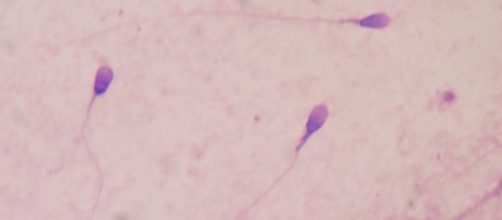Are humans in danger of extinction? An alarming study was published Wednesday in Human Reproductive Update suggesting that men from Western nations like New Zealand, Australia, Europe, and North America showed declining Sperm concentration but no decrease was shown in men from South America, Africa, and Asia.
In recent years, there have been several reports regarding male Fertility. The contrasting findings, however, have sparked debates and raised serious questions in medical science. But a team of researchers from the Hebrew University-Hadassah Braun School of Public Health and Community Medicine and New York’s Icahn School of Medicine wanted to shed some insights regarding this controversial issue.
New study finds #SpermCount halve among western men https://t.co/64JfopQ0eD
— CGTN (@CGTNOfficial) July 27, 2017
Sperm count
Medical science has long been flooded with questions and arguments whether the decreasing sperm concentrations are real or not. Deemed as the best male fertility indicator, sperm count measures and analyzes the quality and concentration of the male reproductive cells. To get the total Sperm Count, the sperm concentration is multiplied by volume, as per Science Alert.
For its baseline value, having a sperm count of more than 15 million per milliliter is considered normal. But low counts may be attributed to diet, lifestyle, or poor health. Lower sperm counts are also linked to an increased risk of heart disease, diabetes, and premature death.
Are humans going extinct?
With the recent findings, some claimed humans might go extinct. But a human sperm pathophysiology expert said the extinction of humans is not quite possible. One reason is the fact that semen analysis is one of the “most poorly performed medical laboratory tests” on earth, citing a 50 percent margin of error.
The recent study also concentrated on sperm count alone and did not consider more significant parameters such as sperm motility and morphology. The 50 percent decrease also do not have a massive change on fertility, as stated by David Mortimer, president of the reproductive biology consulting firm Oozoa Biomedical.
Mortimer also stressed that experts should also consider women who are waiting longer to get pregnant when it comes to declining fertility rates.
Despite the reality that humans are not yet in a crisis of extinction, University of Newcastle scientist Shaun Roman said that the study only serves as a warning to raise awareness for the importance of sperm production investigation.
Public health warning
The latest research on male fertility is reportedly considered a “serious public health warning.” According to Joëlle Le Moal from St. Maurice’s French Institute for Public Health Surveillance, the diminishing sperm concentration among Western males could be a health issue for the next generation since both the male and female reproductive cells are significant for human development, The Guardian noted.
Despite the alarming findings, the study was met with skepticism as the confirmation for the declining sperm count studies has been pretty challenging, citing the elements of reliability and quality of the said experiments.
There are also a lot of factors to consider such as men's socioeconomic status and the fact that only those with fertility issues are often undergoing sperm count tests.
The determination of sperm concentrations are also affected by age, time after the last ejaculation, abstention, changing seasons, obesity, drugs, smoking, and alcohol. Hence, confirming the decline of sperm counts could be quite tricky, especially without the administration of strict standard control of counting methods. Sperm analyses are also subjective.
Lifestyle factors
Meanwhile, there are also several lifestyle factors that could affect the fertility of men. These include smoking, unhealthy diet, stress, over-consumption of caffeine and alcohol, too much exercise, obesity, poor sleep, and prolonged exposure to high temperatures or working in hot environments.


